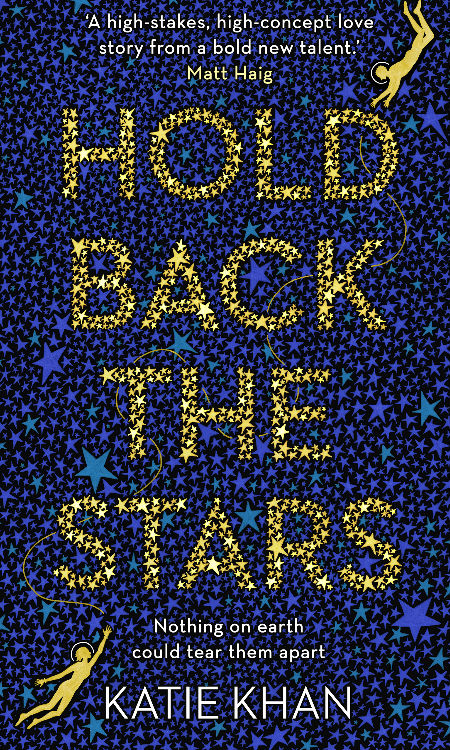
If you have ever fallen in love, you will be all too aware of how all-consumingly wonderful it can be, how it overwhelms you in the best possible way, reshaping your reality so profoundly that it becomes well-nigh impossible to remember a time when the object of your fierce and undying passion wasn’t an intrinsic part of your life.
It is glorious in ways far too numerous to mention, fuelling an industry dedicated to celebrating its many virtues and celebrated moments.
But what no one often talks about all that often is the cost of falling or being in love.
Why? Well it’s not as uplifting as starring dreamily into your beloved’s eyes, all perfectly right with the world but if we’re honest with each other, it’s when love is truly tested, when the romantic pedal hits the metal that we appreciate how deeply substantial all these warm and fuzzy moments can be (assuming they’re the real thing of course; ersatz love disappears like wispy morning fog when placed under pressure).
“‘That’s right,’ says Carys. ‘You’ve always saved me, Mx. A real white knight.’ The dusk of stars surrounds them as they fall, suspended like puppets on the string of space. ‘But this is more serious than my roast potaoes.’
‘At least you’re a little calmer,’ he says, ‘ and using the air more wisely.’
‘Allright,’ she says, ‘you can can stop patronizing me. I’m back. I’m here. I’m breathing.’ She looks around at the darkness, then back to the blue readout on their air supply. ‘What the hell are we going to do?’
‘Don’t worry,’ says Max. ‘I have a plan.'” (p. 23)
In Hold Back the Stars, Katie Khan places love under what could be considered diabolically harsh pressure, realising in the process a deeply heartfelt, wholly original story of romantic love in its most real, most grounded and yet most uplifting form.
Set hundreds of years in the future, the book tells the story of Carys and Max, two people living in Europia, a utopian community made up largely of old Europe and some other inductees such as Australia (proving our participation in Eurovision is well and truly justified!) where the individual is king or queen, beholding to no one, in theory, at least, but themselves.
The reality of course is not quite is not quite as idyllic but still given the harsh reality outside the borders of Europia where the former United States and the Middle East are smoking radioactive ruins, and many other countries are in ruinous states, it’s far better than its grim alternatives.
Max, born to one of the utopian community’s founding families, with all the unyielding, almost harsh expectations that implies, is an idealist, a young man who believes in Rotation, a process that send people in staggered groups to a completely new locale to begin their lives anew and grow and develop, even if he is happy not necessarily pursuing a high-flying career (at least not at first.)
Carys, by contrast, who meets Max when she walks into the supermarket where he works to buy goose fat of all things – his family run all the supermarkets and cafes in Europia – is a gentle sceptic, raised outside the Voivodeship at its known until she was 18 and thus far more free spirited and willing to bend the rules than Max.

At first, their love affair, which contravenes a statute that says you should only couple up at 35 and the only with expressed permission from the powers that be, goes like a great many before it.
They meet, pull back, lunge forward draw close, pull back until they realise that they are far better with each other than apart and that their lives make no sense without the other person in it.
It’s a tale as hold as time and sweet and touching though it is – Khan manages to beautifully demonstrate the depth and passion of their love without once sounding cloying or like a cheap Valentine’s Day card – it is not so remarkable as to merit much mention; after all, people fall in love all the time.
What truly truly sets the story of these memorable characters apart, who come alive so completely and effortlessly at the beginning of the book that you feel like you have known, and more importantly, liked them all your life, is the way Khan takes their earthbound relationship and places in a vacuum-sealed crucible in space where the two have just 90 minutes to get back to their crippled ship or find help before they run out of air.
“‘You know it would be quicker and more painless,” she says, ‘if we took our helmets off now. Stopped breathing and ended it, our choice.’
Max looks at her in horror. ‘Don’t talk like that – you sound like me.’
‘It’s true, though.’
‘Stop it. Come on. You don’t talk like that. Use our air wisely, with more positive words.’
She looks at him expectantly. ‘We’re talking, then.’
‘There’s no better way to spend the last minutes of your life,’ he says, ‘than talking to the best person you’ve ever met.’ (P. 162)
Interspersing the chapters where Max and Carys work to save themselves, their strategising for survival mixed in with entirely authentic conversations about their past, present and all-too-limited future, are flashbacks that tell the story of the ups and downs of their quiet, but life-changing relationship., the two strands woven together near-perfectly to give you a complete sense of who these people, why they matter to each other and why their current predicament is so manifestly unfair.
You fall in love with these characters almost immediately, understanding that theirs is no fleeting fancy, no giddy fling of the heart, but the real thing, tested by trials heavenly and earthbound, which will live on, regardless of whether they survive their current harrowing ordeal.
The masterstroke of this Hold Back the Stars is that it keeps you guessing right up until the end; this is a love story that while reasonably straightforward on the surface, is made of sterner, more glorious stuff deep down, one that stares peril and hardship in the eye and dares it to try and prevail.
Khan does a brilliant job in this wholly original, compelling tale, that is as emotionally as they come, of giving us love as it should be – real, true, messy, grounded, uplifting and hard but always, always, the stuff of which lives should be made.
This is no light, fripperous story with no import, easily discarded; if you have a beating heart it will profoundly affect you as you come to appreciate anew how wonderful real love is and how, even in the most dire of circumstances, that it matters far more than pretty anything else in life.
Shakespeare is invoked throughout the book, principally Romeo and Juliet, and Hamlet, but what really sets Hold Back the Stars apart, is the way Khan depicts, with prose light and accessible yet deeply true and meaningful, love in the trenches where all the Valentine’s Day sentiments won’t save you and the only thing you can depend on is the devotion of the person to whom you have willingly and without regret, turned over your life, come what may.